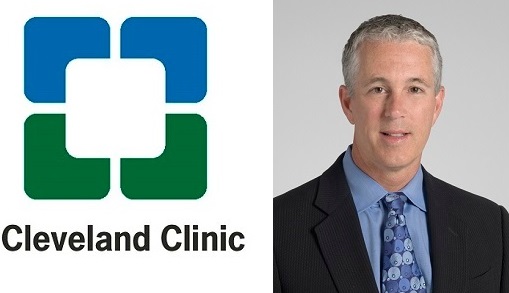Two Cleveland Clinic experts discuss robotic and computer-guided surgery, while a panel considers the benefits of surgical simulations as a training tool at the four-day conference
Robotics have transformed the surgical field by enabling certain complex, delicate procedures to be performed in a safe, minimally invasive way and also by permitting surgeons in different countries to collaborate on a single operation, says an expert from Cleveland Clinic. Moreover, we can expect exciting broader applications in the future as the size and cost of robotic equipment reduce and the market becomes more competitive, says the US-based surgeon ahead of the 21st Surgery Conference to be held during Dubai’s Arab Health industry event.
In the conference session titled ‘The great debate – Will robots replace surgeons in the future?’ Matthew Walsh, MD, Chairman of the Department of General Surgery at Cleveland Clinic, and Matthew Kroh, MD, Vice Chair of Innovation and Technology at Cleveland Clinic, discuss advances in robotic and computer-guided surgery for the treatment of patients. The discussion is one of many sessions exploring the impact of robotics and other new technologies at the four-day Surgery Conference, which will be held live in Dubai from 26-27 January, with online sessions from 9-10 February.
Giving an overview of the rise of less invasive surgeries, Dr Walsh says: “Whereas traditional open surgery is performed through large incisions, newer approaches that use small incisions have become more commonplace in recent decades. While there are still instances where open surgery is the best option, the smaller incisions used in laparoscopic and robot-assisted surgery generally mean smaller scars, less pain and discomfort, fewer complications and shorter recovery and hospital stays.”
He adds: “While robotic surgery has many advantages, it is currently not the most suitable approach in all instances as the equipment is very expensive and can be cumbersome to maneuver due to its size. However, there are some delicate and complex procedures where laparoscopic surgery would not be feasible and robotic surgeries are the ideal minimally invasive solution. The enhanced capability of a 3D camera and the dexterity of the robotic instruments offer a very precise approach in smaller parts of the body. This is ideal for procedures such as prostate and colorectal surgeries, thyroid and gallbladder removal and hysterectomies.”
Dr. Walsh adds that Cleveland Clinic has invested significantly in robotic surgery from the outset and its use spans all highly advanced types of surgeries, from cardiac to partial-liver donation procedures. He says that robotic surgeries are likely to be used more widely in the future as the market becomes more competitive, which is expected to drive price reductions and miniaturization of the equipment.
“Another opportunity opened up by robotic surgery is the ability to collaborate with colleagues across the world, particularly on novel and complex procedures,” he says. “For a global health system like Cleveland Clinic, this holds enormous potential, especially as our network is expanding, with the addition of the Cleveland Clinic London hospital opening this Spring. Experts from our US hospitals, Abu Dhabi and London will be able to collaborate on groundbreaking surgeries in real time.”
Dr. Walsh expects the next exciting surgical transformation to be computerized surgery in the more static solid organs, where a robot could be guided by magnetic resonance imaging (MRI) to precisely cut a tumor out of an organ for example.
Knowing when to use open, laparoscopic or robotic surgery is the mark of a good surgeon and is an important part of the education of future surgeons, says Dr. Walsh.
In fact, new technologies are also playing a role in medical education. “Technological advances are helping to shape the training of future surgeons, an area that is currently undergoing a paradigm shift as we move towards competency-based training,” he says. “We are able to train surgeons to perform procedures using simulations, rather than having them spend years assisting a master surgeon in an apprentice-like relationship. Prospective surgeons can now practice a procedure to a predetermined level of proficiency in a safe, simulated environment and be assessed in these simulations prior to working on real patients.”
Dr. Walsh, who is serving as Activity Director for the Surgery Conference, will also be a panelist in a session on the future of medical education in surgery, as well as deliver a talk on improving outcomes in pancreatic surgery.
“Cleveland Clinic has a longstanding association with Arab Health, and we are pleased to have this opportunity to share our knowledge in the educational sessions as we believe it is our mission to promote medical education globally, ” says.
On an ongoing basis, Cleveland Clinic provides Continuing Medical Education accreditation for Arab Health’s conference sessions, which involves independently verifying the conference content is accurate, unbiased and up to date, and that it adheres to all relevant international professional and ethical standards.
Note to Editor: If you would like further information from Dr. Walsh on robotic surgery; developments in surgical education; or pancreatic surgery, please contact Elizabeth Elphick at CCHQ@wallispr.com or +971-50-705-9518.
– ENDS –













